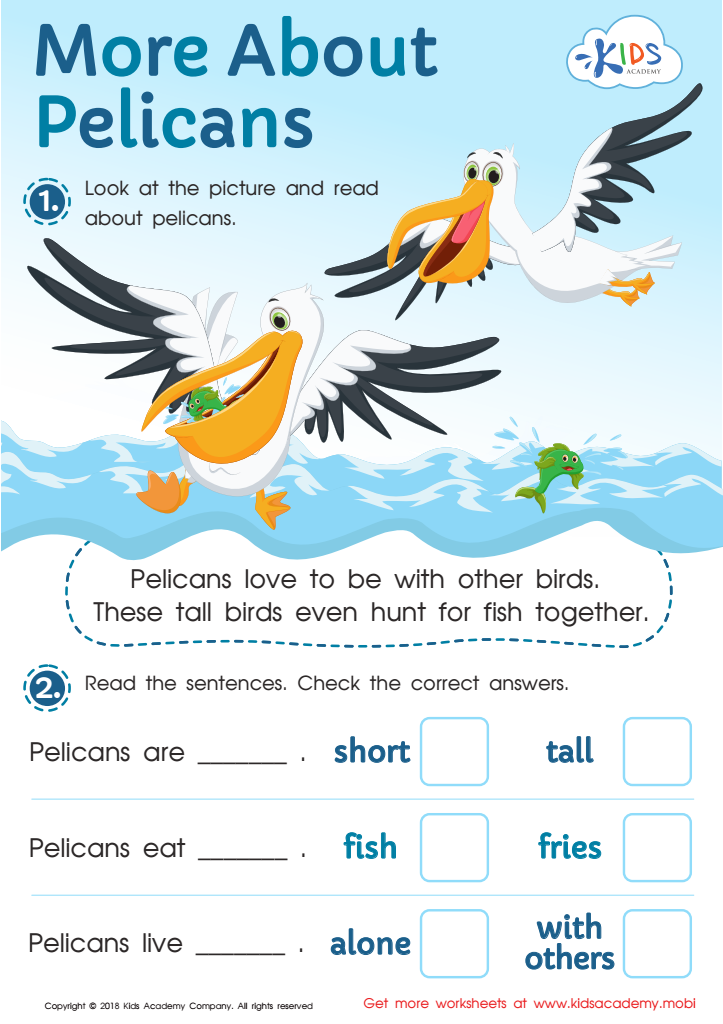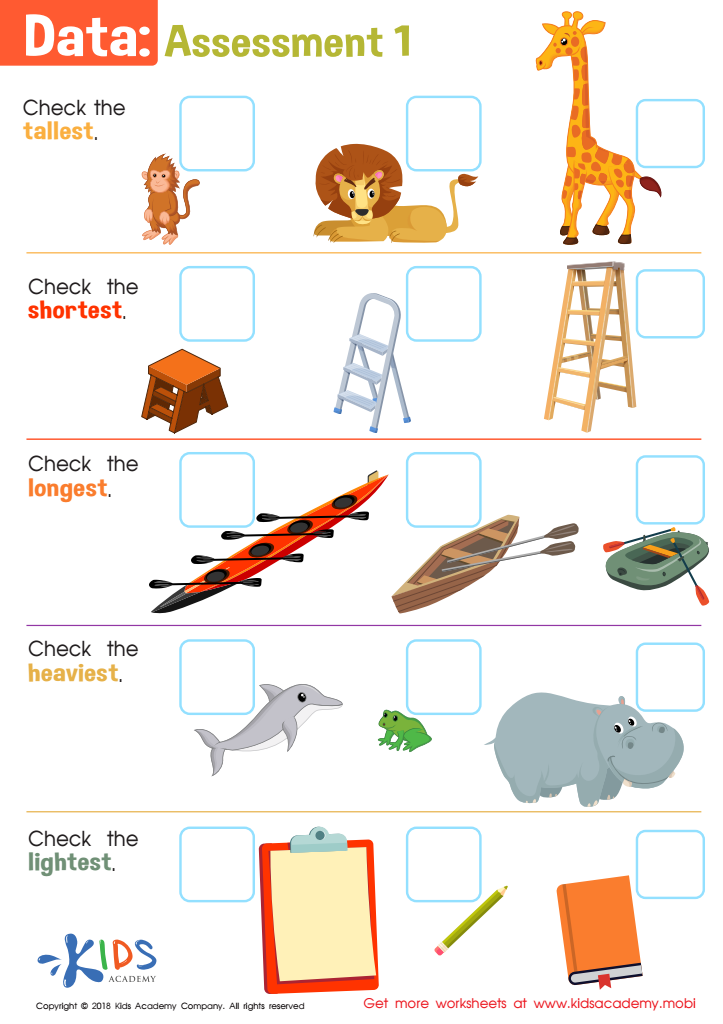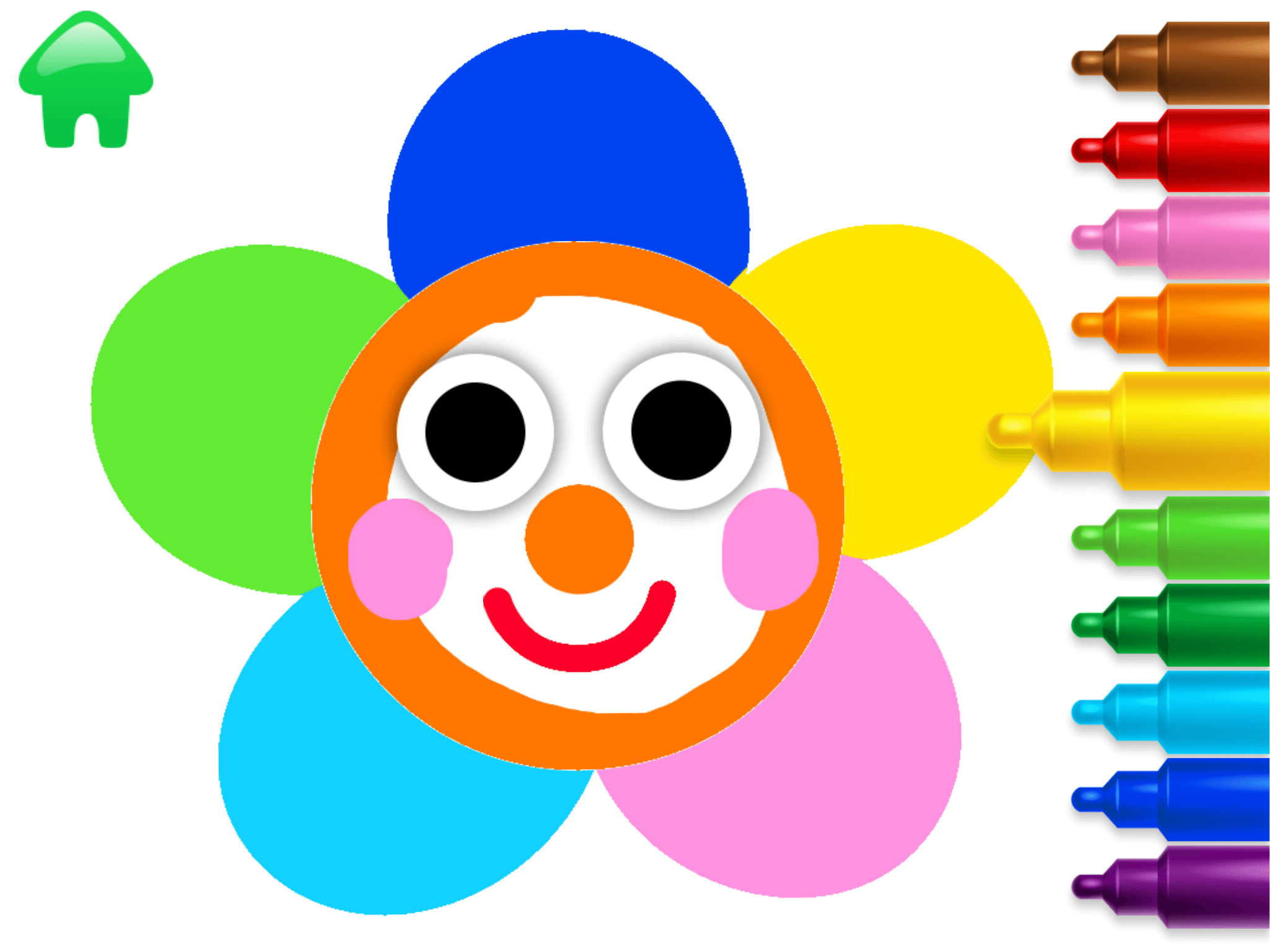Drawing conclusions Worksheets for Ages 4-7
3 filtered results
-
From - To
Unlock your child's innate ability to draw conclusions with our engaging worksheets designed for ages 4-7. These playful activities encourage critical thinking and comprehension as young learners analyze pictures and texts to make sense of various situations. Each worksheet fosters essential skills through fun exercises, promoting independent thought and decision-making. Your little ones will enjoy vivid illustrations and interactive questions, making learning an enjoyable experience. Ideal for both classroom and home settings, these worksheets support early literacy and reasoning development. Explore our collection today to nurture your child's cognitive skills and pique their curiosity about the world around them!


More About Pelicans Worksheet


Data: Assessment 1 Worksheet
Drawing conclusions is a vital skill that supports children's critical thinking and comprehension abilities, particularly for those aged 4 to 7. At this stage, children are actively learning how to interpret information and understand the world around them. When parents and teachers encourage the practice of drawing conclusions, they help children make connections between concepts, develop reasoning skills, and enhance their ability to analyze situations.
At this age, children engage with stories, observations, and experiences that require them to interpret data and sensory information. Being able to conclude—whether it's understanding the moral of a story or predicting what happens next—fosters curiosity, confidence, and independence in their thinking.
This skill also enhances literacy development; as kids learn to draw conclusions from text, they become better readers and communicators. Additionally, drawing conclusions nurtures social-emotional skills, as children begin to navigate relationships and understand others' perspectives.
Moreover, honing this skill prepares them for more complex academic challenges in later years. By emphasizing the importance of drawing conclusions in daily activities, parents and teachers can build a strong foundation that supports lifelong learning. Encouraging this practice aids not only in cognitive development but also fosters a culture of inquiry and discovery in young minds.
 Assign to My Students
Assign to My Students

















